US Strikes Against Iran-Backed Militias Fail To Target Iranian Forces
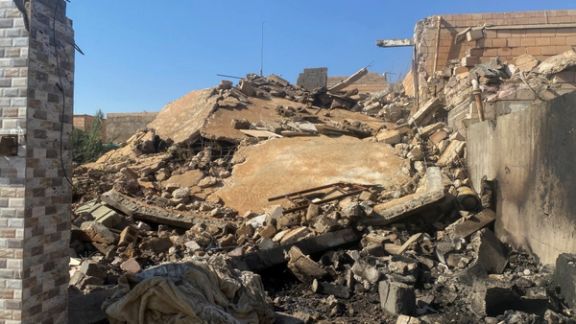
Despite ongoing US strikes against Iran-backed militias in Iraq and Syria, no Iranian personnel have been reported killed thus far, according to The Wall Street Journal.

Despite ongoing US strikes against Iran-backed militias in Iraq and Syria, no Iranian personnel have been reported killed thus far, according to The Wall Street Journal.
The strikes, initiated after a drone attack in Jordan on January 28 that resulted in the deaths of three US troops and injuries to over 40 others, have yet to directly target Iranian forces.
The recent attacks in western Iraq near the Syrian border resulted in the deaths of 16 Iraqis with an additional 25 people wounded. Telegram channels affiliated with Iran’s Revolutionary Guards shared images of 10 Iraqi militiamen purportedly killed in the strikes.
Amid Washington's publicized intentions to target Iranian allies in the region, Tehran seems to have had time to prepare and relocate its personnel, avoiding significant casualties among senior Revolutionary Guard members.
“As long as US strikes in Iraq and Syria avoid killing senior Iranian Revolutionary Guard personnel, Tehran is unlikely to respond in kind,” added the report.
Some commanders in eastern Syria have reportedly moved to safe houses in densely populated areas or to southern regions where they can blend in with Syrian and Russian military forces.
Meanwhile, in Yemen, approximately 50 advisers from Iran's Guards and Hezbollah have relocated from coastal areas, where they were involved in missile and drone attacks on ships, to San'a, the de facto capital of the Houthi rebels.
While the US strikes may lead to a temporary decrease in attacks from Iran-backed militias, groups such as Yemen's Houthis and some Iranian proxies in Iraq have vowed to continue their activities until Israel ceases its operations in Gaza.
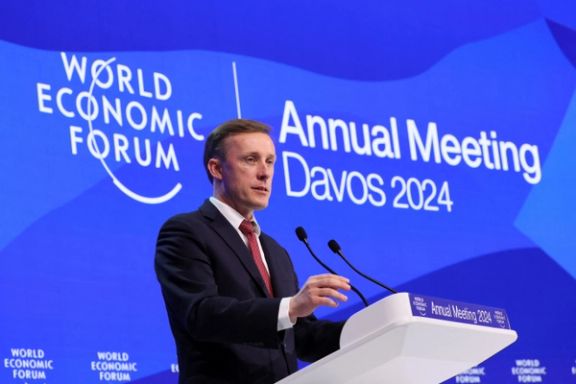
The United States will conduct more strikes against Iran's proxy militias after three countries were targeted in two days as the US vows to crack down on Iranian attacks on US facilities in the region.
“It began with strikes on Friday night but that is not the end of it," White House National Security Adviser Jake Sullivan told NBC News on Sunday following over 85 attacks on Iraq and Syria Friday night. "We intend to take additional strikes and additional action to continue to send a clear message that the United States will respond when our forces are attacked, or people are killed,” he added.
On Saturday night, in a joint operation with Britain, the United States initiated dozens of strikes against Iran's Yemeni proxy, the Houthis, which is currently blockading the Red Sea in a bid to force Israel into a ceasefire amidst the war in Gaza against the Iran-backed Hamas militia, sparked by Hamas's invasion of Israel on October 7. Around 1,200 mostly civilians were murdered and at least 250 more taken hostage.
As a result of the US support for Israel's right to defend itself, Iran's proxies have waged at least 160 attacks on US facilities across the Middle East since October 7.
The barrage of airstrikes were launched in response to an assault on a base in Jordan last Sunday which resulted in the deaths of three American troops and injuries to approximately 40 others.
“We do believe that the strikes had good effect and degrading capability to these militant groups that attacked us,” he said. “And we do believe that as we continue, we will be able to continue to send a strong message about the United States [and its] firm resolve to respond when our forces are attacked.”
The US military (CENTCOM) reported on Friday that in the initial round of strikes in Iraq and Syria against Iran's Islamic Revolutionary Guards Corps (IRGC) Quds Force and associated militia groups, more than 85 targets were hit.
Speaking separately to Fox News Sunday, White House national security spokesman John Kirby also dubbed Friday night's strikes the "first round" of action.
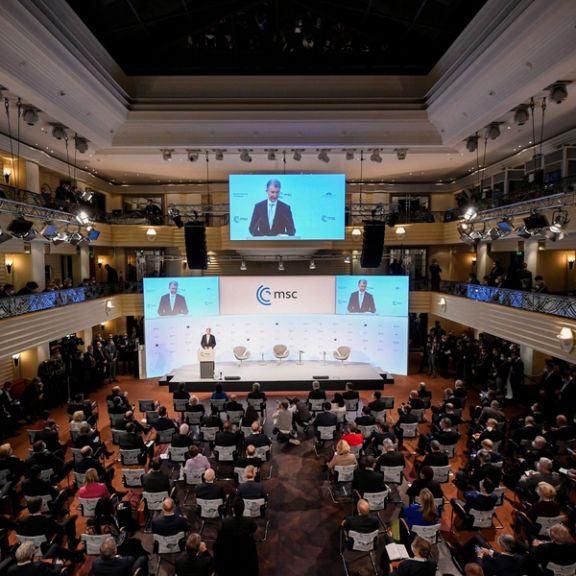
Iranian government is banned from the Munich Security Conference for the second year in a row as Tehran’s relation with the West reaches a breaking point.
Christoph Heusgen, head of the conference, said, "In the case of Iran, we are hearing from the German government and also from the Americans that there is no interest in talks. As things stand at the moment, we are only inviting Iranians from non-governmental organizations."
In addition to Iran, Russia and the German far-right party AFD have also not received invitations. Heusgen expressed skepticism regarding the prospect of meaningful dialogue with Russian President Vladimir Putin, opting instead to invite exiled politicians and representatives from non-governmental organizations.
The Munich Security Conference held an event with Iran Foreign Ministry thank-tank (IPIS) in October 2015 in Tehran, the same group that hosted a global Holocaust denial summit in 2006. Among those on the guest list, according to an invitation list seen by Iran International, was Qasem Soleimani, the slain commander of IRGC’s extraterritorial Quds Force. The MSC did not respond to Iran International’s requests for comment about co-hosting the event with the IPIS and the invitation of Soleimani to the conference.
Approximately 50 heads of state and government, along with around 100 ministers, are expected to attend this year's conference which is taking place from February 16 to 18.
The conference is globally renowned as one of the leading events to bring security policymakers together to discuss present and impending challenges. It comes at a time when Iran's proxy militias are causing havoc around the Middle East and major disruptions to global trade and shipping.
The decision to exclude Iran and Russia last year came amid ongoing global concerns. Iran's participation was halted following 2022 protests that saw hundreds killed, including numerous children, and thousands detained in connection to demonstrations. Similarly, Russia's exclusion was tied to its continued aggression against Ukraine.
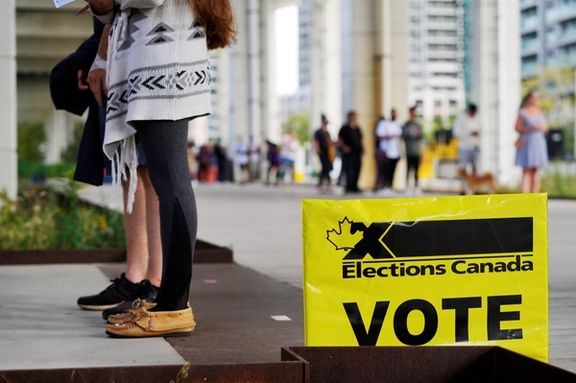
A Canadian-Iranian lawmaker has called for an inquiry about Tehran’s potential interference in the country’s elections as was seen in the 2020 US presidential vote.
“Given the catalogue of malign and illegal activities committed by the Islamic Republic of Iran on Canadian soil, it would be naïve to believe that the Iranian regime has any compunction to shape public opinion in Canada,” Ali Ehsassi said in his letter, calling for soliciting testimony and relevant documentation from Iranian-Canadians and others with a substantial interest in the proceedings.
In a formal letter addressed to Commissioner Marie-Josee Hogue, who oversees Canada’s Foreign Interference Commission, Ehsassi demanded that Iran be included within the ambit of her inquiry.
Officially called the "Public Inquiry into Foreign Interference in Federal Electoral Processes and Democratic Institutions," the inquiry was established by the government of Canada in September 2023 focusing on the interference by China, Russia and other foreign actors on the 2019 and 2021 federal elections. Its first public hearing has been underway since late January and its interim report should be submitted by February 29.
Expressing concern about “the rather inconclusive public commentary that has surrounded the specific scope of the inquiry,” Ehsasi strongly urged Hogue “to consider examining and assessing any nefarious activities attributable to the Islamic Republic of Iran in Canada that may have impacted our political processes or democratic foundations.”

He mentioned the inclusion of India in the inquiry as a precedent for expanding its scope, saying that the inquiry requested that the Federal Government collect and produce all classified information that may be within its possession that relate to the alleged interference by India. He suggested that she do the same about Iran.
Representing Willowdale in Toronto, Ehsassi highlighted the presence of a sizable Iranian-Canadian community in his federal riding. He emphasized the need to examine the Iranian regime's potential involvement in Canada's political landscape, citing concerns about cyberattacks, money laundering operations, and various attempts to influence elections.
In 2021, two Iranians were charged for cyber disinformation and a threat campaign designed to influence the 2020 US presidential election. Mohammad Hossein Muousakazemi (27) and Sajjad Kashian (24) illicitly acquired confidential US voter information through a breach of at least one state election website. Subsequently, they sent threatening email messages to instill fear and disrupt voters. Additionally, the perpetrators produced and circulated a deceptive video, spreading disinformation about alleged vulnerabilities in election infrastructure. They also made attempts to access several states' voting-related websites.
“Any familiarity with the intentions and capabilities of the Islamic Republic confirms that it retains a keen interest in furthering its perceived objectives in Canada, albeit by clandestine and surreptitious means," he said. “Apart from being able to draw on various individuals linked to it that reside in Canada, the Iranian Government is believed to rely on a number of organizations and foundations to assist it in sowing division, slandering individuals, silencing its critics, or holding sway over our elections.”
Ehsasi also pointed to Tehran’s efforts to harass and target people throughout North America, saying that “in recent years numerous plots by the Iranian regime to assassinate individuals in North America have been foiled.”
Just last month, US prosecutors accused an Iranian drug lord of recruiting two Canadian Hells Angels to assassinate Iranian defectors in Maryland as attacks on dissidents abroad continue. A federal indictment accused Naji Sharifi Zindashti of leading a network that has perpetrated the killings, tortures and kidnappings of Iranian dissidents around the world on the orders of Iran’s Ministry of Intelligence and Security.
In his letter, he referenced warnings from Jody Thomas, former National Security Adviser to Prime Minister Trudeau, and Richard Fadden, former Canadian Security Intelligence Service director, who cautioned against ignoring potential interference by Iran. “The Public Inquiry will prove unable to detect, deter or encounter the full breadth of threats posed to Canada by foreign regimes without an examination of the Islamic Republic of Iran.”
Ehsasi concluded by urging the commission not to turn a blind eye to the Iranian regime's malign intent and activities on Canadian soil, emphasizing that failure to do so might cast doubt on the overall efficacy of the inquiry's findings and “embolden the Iranian regime to attempt to influence Canada’s elections in the future.”
A report by Canada’s Global News in November cited Canadian-Iranians, legal experts, and security and intelligence sources as concurring that Canada has an especially big problem with hundreds, maybe thousands, of potentially dangerous regime-connected officials on Canadian soil.
Earlier this week, Canada’s refugee board ruled that former Iranian government official Majid Iranmanesh cannot stay in the country because of his high-level connections to the regime. Iranmanesh is one of nine alleged senior members of the Iranian regime who face possible deportation. The Canada Border Services Agency has said it was investigating 141 such cases. Thirty-eight have been closed without action.
According to Canada-based activist Hamed Esmaeilion who lost his daughter and wife in the shooting down of Flight PS752 by Iran’s Revolutionary Guard in 2020, said, “Islamic Republic agents are everywhere in this country. Everywhere.”
He is one of many Iranians in the diaspora calling on Western governments to designate the IRGC.

Israel has conducted airstrikes on more than 50 Hezbollah targets in Syria and 3,400 in Lebanon since the onset of the Gaza war, which sparked a regional offensive by Iran's proxies in allegiance with Hamas.
“Since the beginning of the war, we have attacked, from the ground and air, more than 50 such targets of Hezbollah spread throughout Syria,” Israeli army spokesman Daniel Hagari told reporters.
Since the Gaza war began on October 7, after Iran-backed Hamas invaded Israel, killing 1,200 mostly civilians and taking more than 250 hostages, the worst tensions between Iran's biggest proxy Hezbollah and Israeli forces on its northern border have reached crisis point.
The toll from the clashes includes at least 218 deaths in Lebanon, primarily Hezbollah militants, and at least 26 civilians. In northern Israel, the conflict has claimed the lives of nine Israeli soldiers and six civilians since it commenced, with around 200,000 people displaced on both sides, fearing wider escalation.
In response to Hamas's attack on October 7, the single most deadly day for Jews since the Holocaust, Israel launched a relentless offensive involving airstrikes, ground operations, and naval bombardments. Hamas claims Israel has killed at least 27,238 people, predominantly women and children.
Proxies in Syria, Iraq and Yemen have also joined the war in support of Hamas, attacking both US and Israeli targets in the region, in addition to a blockade of the Red Sea, affecting global shipping.
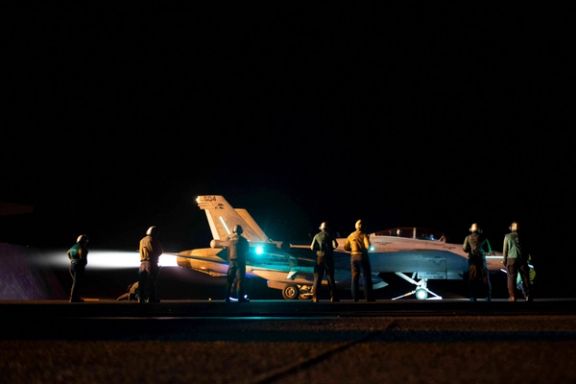
Iran’s Revolutionary Guard had no presence in the military bases bombed by the United States, an IRGC general and a member of the Iranian parliament reiterated on Sunday.
Esmail Kowsari, who is of many IRGC senior officers in the hardliner faction in the parliament, reiterated that if there were any Iranian bases among the targets hit by the US in Iraq and Syria, Tehran would have retaliated. He also dismissed any role in the drone attack in Jordan on January 28 that killed three US soldiers and precipitated current tensions.
In the meantime, the United States and Britain launched strikes against 36 Houthi targets in Yemen on Saturday, in the second day of major US operations against Iran-linked groups. The strikes hit buried weapons storage facilities, missile systems, launchers and other capabilities the Houthis have used to attack Red Sea shipping, the Pentagon said, adding it targeted 13 locations across the country.
US officials had warned during the week that they were planning a string of attacks on Iran-affiliated targets in the region, and that the retaliatory operation would not be limited to one massive attack.

The action against the Houthis seems to have proven that threat. "This collective action sends a clear message to the Houthis that they will continue to bear further consequences if they do not end their illegal attacks on international shipping and naval vessels," US Defense Secretary Lloyd Austin said.
Iran seeing the writing on the wall tries to disassociate itself from the US strikes on its proxies. Kowsari, when asked if Iran would retaliate, said, "These attacks have no connection to Iran at all. But if the slightest action threatens our resources or interests by the United States, we will undoubtedly and certainly respond with a crushing blow that they will regret."
It is noteworthy that the first wave of retaliatory strikes in Iraq and Syria took place five days after the attack on the US base in Jordan, leading to criticism that IRGC personnel and senior proxy leaders had ample time to vacate military bases and potential target areas.
Attacks by Iran-backed armed groups started in mid-October after the Gaza war began and so far more than 160 such strikes on US forces in Iraq and Syria have taken place using drones and rockets. The US has retaliated several times against militia targets, but critics say without inflicting pain on the Iranian regime, which is the main sponsor of these groups, nothing will change. Tehran is ready to sacrifice Arab and Afghan fighters it employs, so any retaliation should be aimed at deterring Iran’s rulers.
Official Iranian statements and media coverage of US airstrikes on Saturday indicated that the concerns about a serious retaliation have dissipated and Tehran can move on with pursuing its regional policies.
By Sunday, Iran’s battered currency continued to rise and regained half of the losses it had sustained since early January, once the US strikes appeared to be limited to militia targets, and not directly aimed at any Iranian assets.
However, any increase in tensions with the United States could lead to further currency losses less than four weeks from parliamentary elections, already marred by voter apathy.